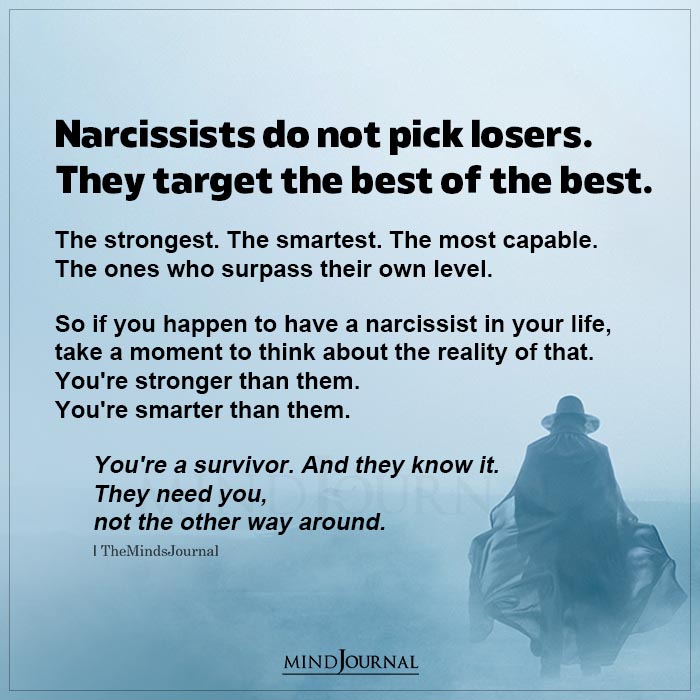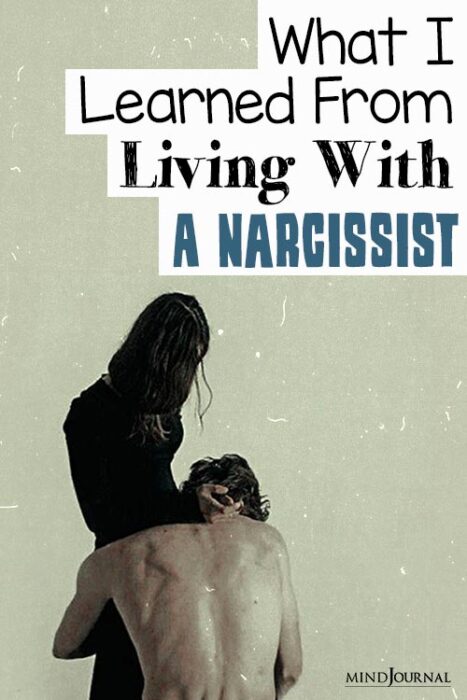Are you in a relationship with a narcissist? Well there can be long term effects of living with a narcissist, can be emotionally depleting. Read to know more.
Relationships with narcissists revolve around them – their needs, their entitlement, their vanity, and their moods. Partners are not seen as separate, whole human beings with their own feelings and needs.
Because they lack empathy and think of only of themselves, narcissists feel entitled to control, belittle, and exploit family members in order to boost their impaired self-esteem and maintain their control.
Maintaining power is their primary objective because it makes them feel safe and keeps their deep-seated feelings of shame at bay. Their defenses that are difficult for other people help them do this.
Unfortunately, partners also suffer from impaired self-esteem, and in the early stages of the relationship don’t mind sacrificing their own needs. This encourages the narcissist to make increasingly unreasonable demands. Partners put the narcissist first because they believe putting themselves first is selfish and because they believe it secures the narcissist’s love.
But over time, they realize that trying to please the narcissist and meet their insatiable needs is thankless – like trying to fill a bottomless pit. The narcissist finds fault with their efforts or gives back-handed compliments so that partners always feel one down.
Even if momentarily pleased, the narcissist is soon disparaging or asking for more. Underneath, both narcissists and their partners feel unlovable.
Effects Of Living With A Narcissist
Narcissists make their partners experience what it was like having had a cold, invasive, or unavailable narcissistic parent. Their partner’s needs, concerns, and interests are of no concern to the narcissist, who in some cases lives his or her life as if no one else existed, making their partners feel invisible.
Anne Rice’s vampire Lestat had just such an emotionally empty mother, who devotedly bonded with him to survive. The deprivation of real nurturing and a lack of boundaries make narcissists dependent on others to feed their insatiable need for validation.
Partners often doubt the narcissist’s sincerity and question whether it’s really manipulation, pretense, or a manufactured “as-if” personality.
They wonder, “Can a narcissist love?” They feel tense and drained from narcissistic abuse, including unpredictable tantrums, attacks, lies, false accusations, criticism, and unjustified indignation about small or imaginary slights.
These partners also lack boundaries and absorb whatever is said about them as truth. In vain attempts to win approval and stay connected, they sacrifice their needs and walk on eggshells, fearful of displeasing the narcissist. They daily risk blame and punishment, love being withheld, or a rupture in the relationship.
Related: How Narcissists Make You Physically Sick And 5 Ways To Restore Your Health
They’re unable to effectively handle abuse. They worry about what their spouses will think or do, and become as preoccupied with the narcissist as the narcissist is with him or herself.
Loving a narcissist creates constant insecurity and disappointment. Often in these relationships, narcissists are the distancers when more than sex is anticipated.
To a narcissist, getting emotionally close requires giving up power and control. The thought of being dependent is abhorrent. It not only limits their options and makes them feel weak, but also exposes them to rejection and feelings of shame, which they keep from consciousness at all costs (Lancer, 2014).

Soon, partners begin to doubt themselves and lose confidence and self-worth. Communicating their disappointment gets twisted and is met with defensive blame or further put-downs.
The narcissist can dish it out, but not take it. When two narcissists get together, they fight over whose needs come first, blame and push each other away, yet are miserable needing each other.
Partners have to fit into the narcissists’ cold world and get used to living with emotional abandonment. Although the narcissist may have pursued them when they were dating, now they pursue the narcissist for crumbs of attention, unconsciously replaying emotional abandonment from their past.
Related: The Untold Story Behind A Narcissist’s Projection
Nevertheless, many partners stay, because periodically the charm, excitement, and loving gestures that first enchanted them return, especially when the narcissist feels threatened that a breakup is imminent. But even when there are no reprieves from the narcissist’s coldness and cruelty, the trauma bond and intermittent reinforcement bind the couple.
For these and other reasons, breaking up with an abuser is harder than leaving a normal relationship. It first requires that partners reclaim their self-esteem and confidence.
Sometimes this process can right the relationship that has become so one-sided and off-kilter. Find out how or whether the relationship is worth salvaging in Dating, Loving, and Leaving a Narcissist: Essential Tools for Improving or Leaving Narcissistic and Abusive Relationships. This book has thought-provoking self-help exercises designed to enlighten the reader, as well as steps and scripts to confront abuse.
Learn more about the cause of narcissism and narcissistic relationships.
©Darlene Lancer 2018, 2023
Related: 24 Signs You’re Dealing With A Covert Narcissist
One can get emotionally depleted from living with a narcissist. Are you also living with one? Share your thoughts below!










Leave a Reply
You must be logged in to post a comment.